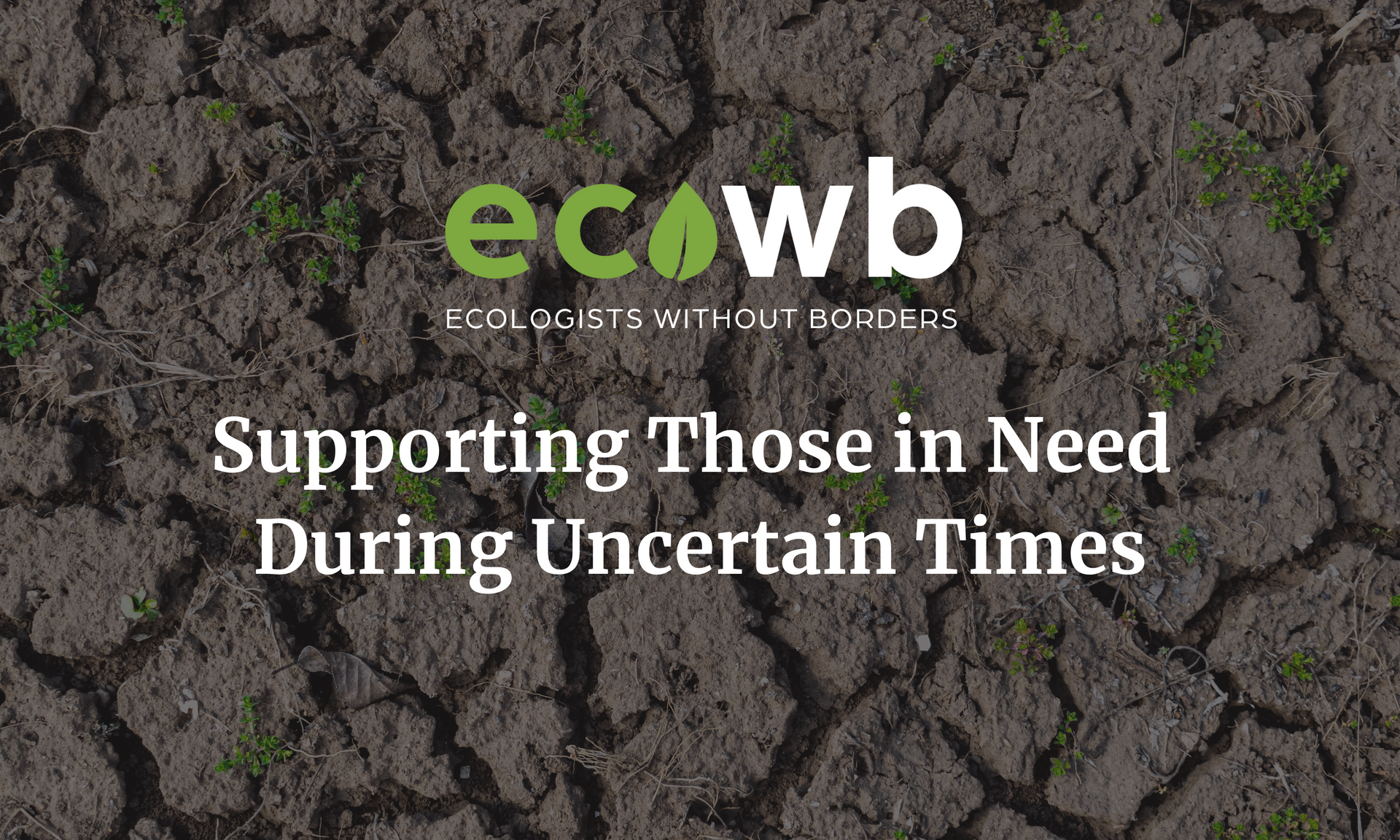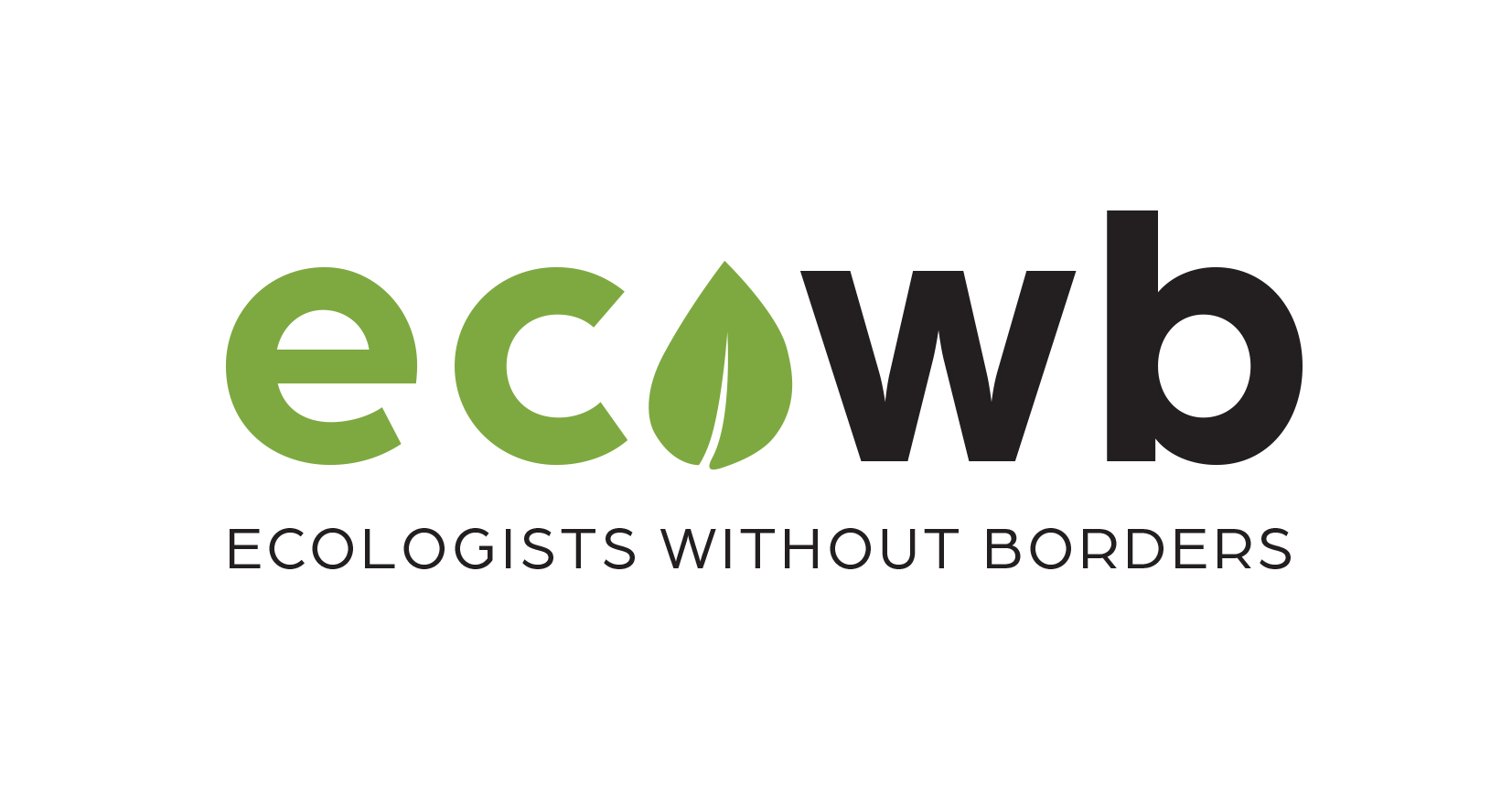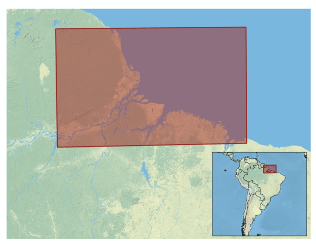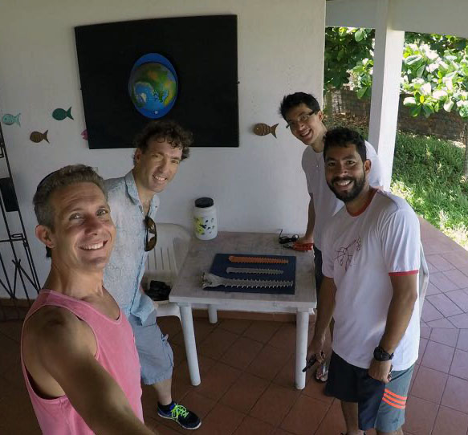The Amazon region, both within the Amazon River and along coast north and south of the river, is home to numerous large, migratory fishes. One of these fishes, the largetooth sawfish, has been the recent focus of the EcoWB Amazon Megafish Migration project. And, with International Sawfish Day on October 17 th , and World Fish Migration Day on October 24 th , now is the perfect time to highlight the work being done by the Megafish team.
Largetooth sawfish are a critically endangered species worldwide, listed on the IUCN Redlist of Threatened Species. They are also fascinating, both because of their unique body plan and because they are somewhat of a scientific mystery. Sawfish are a type of ray, though their body shape, with prominent dorsal fins and tail fins, means they are often mistaken for sharks. Their rostrum bordered by sharp rostral teeth is a unique adaptation that they use to both sense and hunt prey.
From left: Dr. Patricia Charvet, Dr. Jens Hegg, Mariana Moro in Curitiba, Brazil holding sawfish rostrum samples from the Amazon region.
Largetooth sawfish are a euryhaline species, able to tolerate a range of salinities. They are sometimes known as Freshwater Sawfish because they are often found in rivers as well as in brackish environments. However, most of the current data on largetooth sawfish comes from Australia where their numbers are still somewhat plentiful. The Amazon region is thought to be one of the last refuges for the species in the Americas, but we know very little about their numbers or their behavior and ecology in this part of the world.
The EcoWB team is working to better understand largetooth sawfish in the Amazon region using chemistry. Partnering with researchers in Brazil including Dr. Patricia Charvet, Dr. Tommaso Giarrizzo, and Dr. Jorge Nunes, Dr. Jens Hegg has identified and collected over 100 sawfish rostral teeth. Because the teeth grow throughout the life of the fish we have discovered that they record chemistry, particularly chemical records of salinity, which might allow us to better understand their distribution and behavior. The preliminary findings are currently in review and a pre-print of this work can be found on BioRxive.
Study area used to create the GIS model.
The Megafish team has been hard at work this year collaborating with the EcoWB GIS Program to support this work. In order to reconstruct the chemistry within our sawfish samples it is important to understand the spatial variation of chemistry across the area being studied. This helps to narrow down the likely locations where sawfish may have travelled throughout their life, and better understand how these movements across fresh and brackish water relate to other important parts of their life-history. All of this, eventually, can help us understand more about the behavior and distribution of largetooth sawfish in the Amazon river and along the Brazilian Amazon coast.
To this end the EcoWB GIS Program has helped to identify temperature, depth, and salinity datasets which can be used to characterize the potential habitats of largetooth sawfish in the Amazon region. In the coming months the team will be building these datasets into a GIS model that can be used to inform the chemistry we find in the sawfish rostral tooth samples we are working to import and analyze.
From left: Dr. Tommaso Giarrizzo, Dr. Jens Hegg, PhD Student Leonardo Feitosa, Dr. Jorge Nunes collecting donated rostral tooth samples near São Luis, Brazil.







